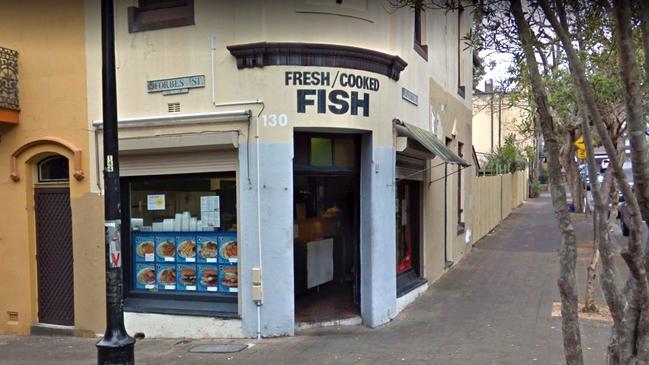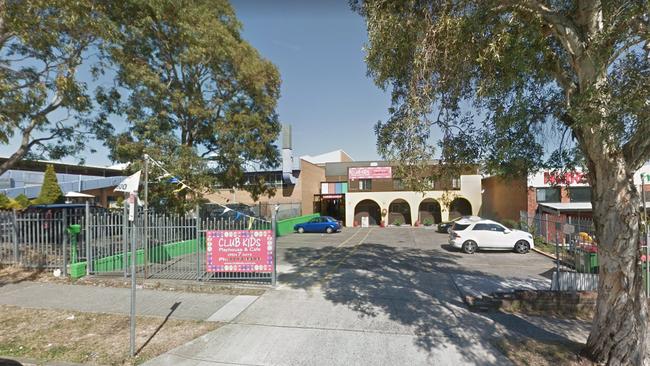Restaurant’s poor food safety causing spike in food poisoning
From Mosman to Merrylands, a spate of restaurants across NSW have been named and shamed as being unclean leading to a spike in food poisoning cases across NSW, fuelled by scorching temperatures. FIND OUT WHICH SYDNEY RESTAURANTS HAVE BEEN CAUGHT OUT
NSW
Don't miss out on the headlines from NSW. Followed categories will be added to My News.
- NSW Food Authority health warning on eggs infected with Salmonella
- Food sellers falling short on safety in inner west
Scorching temperatures and poor food safety have exacerbated the number of food poisoning cases across NSW, prompting a warning from health authorities to consumers and retailers alike.

There have been 750 notifications of salmonellosis in NSW between 1 December to 2 February.
NSW Health say cases of salmonellosis have been increasing in recent months as the weather in NSW has become warmer.
Salmonella notifications peak over summer because bacteria thrive in warmer weather and can contaminate food in a shorter time.
Products containing undercooked eggs and improper separation of foods during food preparation are the most common source of outbreaks of salmonellosis in NSW.

Six per cent of the 750 recent cases have been linked to an ongoing investigation into an outbreak strain found in eggs.
NSW Food Authority CEO Dr Lisa Szabo said while eggs are a delicious and nutritious food choice, they do need special care as they can cause food poisoning if they’re not handled and prepared correctly.
To reduce the risk of Salmonella poisoning, consumers and food retailers should use commercially produced products instead of handmade mayonnaise and sauces when preparing food.
“It is also much safer to use commercially pasteurised eggs rather than raw eggs in ready-to-eat products such as desserts and drinks,” Dr Szabo said. “Businesses in NSW must comply with strict requirements around the use of raw eggs in foods.”

“Retailers should remember that food laws in NSW prohibit the sale of eggs with dirty or cracked shells, which increase the risk of contamination, and should reject any eggs that are not intact.
“While preparing and handling food, keep benches and utensils clean and dry and do not allow cross contamination of raw and cooked products.”
NSW Health say consumers are advised to check for any eggs that are marked with the identifying stamp BEC or BEC115 because they may be contaminated with Salmonella.
The affected eggs may have been sold in unlabelled cartons, or mixed with other eggs with different stamps, so it is important to check each egg before use.
NSW Health is also continuing to investigate a small number of outbreaks of salmonellosis illness, some of which have been linked to restaurants using raw egg products.
Restaurants, cafes, bakeries, caterers and manufacturers that make raw egg dressings, desserts and sauces need to follow safe handling practices.
These businesses must use alternatives to raw eggs in foods which are not subsequently cooked.
Alternatives include commercially produced dressings and sauces, or pasteurised egg products.

NSW Health key tips to avoid food poisoning:
KEEP IT COLD
- keep the fridge below 5 degrees Celsius
- put any food that needs to be kept cold in the fridge straight away
- don’t eat food that’s meant to be in the fridge if it’s been left out for 2 hours or more
- defrost and marinate foods in the fridge, especially meats
- shop with a cooler bag, picnic with an Esky
KEEP IT CLEAN
- wash and dry hands thoroughly before starting to prepare or eat any food, even a snack
- keep benches, kitchen equipment and tableware clean and dry
- don’t let raw meat juices drip onto other foods
- separate raw and cooked food and use different cutting boards and knives for both
- avoid making food for others if sick with something like diarrhoea
CHECK THE LABEL
- don’t eat food past a ‘use-by’ date
- note a ‘best before’ date
- follow storage and cooking instructions
- be allergy aware
- ask for information about unpackaged foods
Originally published as Restaurant’s poor food safety causing spike in food poisoning


